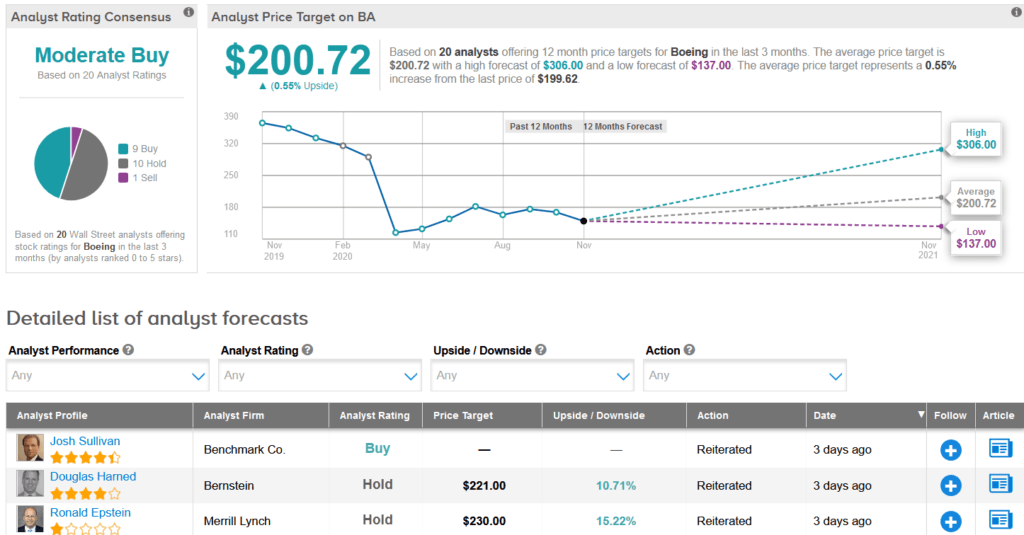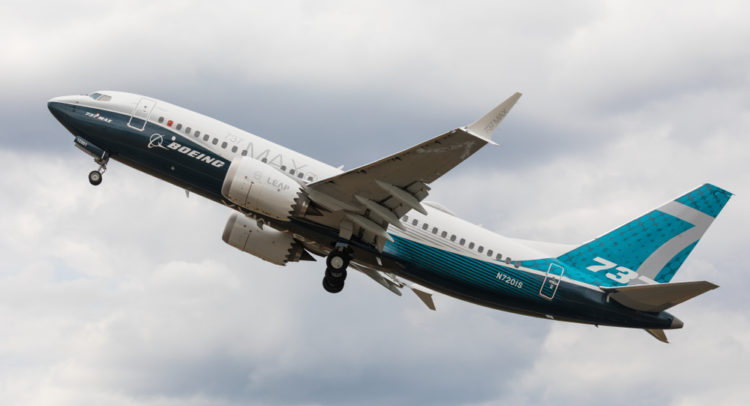Boeing Co.’s 737 Max aircraft is poised to be given the green light by Europe’s regulator to return to the skies in January after its US counterpart last week put an end to a 20-month grounding triggered by two fatal crashes.
Discover the Best Stocks and Maximize Your Portfolio:
- See what stocks are receiving strong buy ratings from top-rated analysts.
- Filter, analyze, and streamline your search for investment opportunities with TipRanks’ Stock Screener.
According to a Reuters report, the head of the European Union Aviation Safety Agency (EASA) said in remarks aired on Saturday that Boeing’s (BA) 737 Max was safe to fly after changes to the design of the jet that crashed twice in five months in 2018 and 2019, killing 346 people.
“We wanted to carry out a totally independent analysis of the safety of this aircraft, so we performed our own checks and flight tests,” Executive Director Patrick Ky told the Paris Air Forum, an online aviation conference hosted by La Tribune.
“All these studies tell us that the 737 Max can return to service. We have started to put in place all the measures,” he said. “It is likely that in our case we will adopt the decisions, allowing it to return to service, some time in January.”
Reuters reported that officials confirmed a draft EASA directive proposing to end the grounding in Europe will be published next week, followed by a 30-day comment period. After finishing touches, that would lead to an ungrounding decision in January.
The timing for the resumption for flights in Europe will depend on pilot training and the amount of time it takes airlines to upgrade software and carry out other actions mandated by EASA.
Last week, the US Federal Aviation Administration (FAA) lifted the grounding order that halted commercial operations of Boeing’s 737-8s and 737-9s. The ailing planemaker said that the FAA move will allow airlines that are under its jurisdiction, including those in the US, to take the steps necessary to resume services and for Boeing to begin making deliveries. For now, commercial flights are scheduled to start on Dec. 29, just under six weeks after the FAA order was published on Nov 18.
Shares of BA have tanked 39% year-to-date as the coronavirus travel restrictions have resulted in a deep cut in the number of commercial jets and services Boeing customers need over the next few years. As such, global airlines suffering billions of dollars in losses have been seeking to cancel or delay some of the orders they have with Boeing, including the grounded 737 Max. The stock jumped more than 18% over the past month as investors anticipated the recertification of the 737 Max.
Despite the positive news of the FAA lifting of the ban, Canaccord analyst Kenneth Herbert stuck to his Hold rating with a $160 price target (20% downside potential), as he expects BA to deliver 225 jets in 2021 versus the roughly 450 parked jets.
“The production ramp will be held hostage to the pace of deliveries as Boeing will focus on inventory reduction,” Herbert commented in a note to investors. “The challenge now for Boeing will be turning the tide on Max orders, which have lagged behind as the company has booked [about] 500 cancellations on the program.” (See BA stock analysis on TipRanks)
The rest of the Street has a cautiously optimistic Moderate Buy analyst consensus on the stock. That’s with an average analyst price target of $200.72, indicating shares are more than fully priced at current levels.

Related News:
Nasdaq To Snap Up Verafin For $2.75B In Fraud Detection Push
FireEye Surges 17% On Investment & Acquisition Deal, Analyst Lifts PT
Norbord Jumps 11% On West Fraser Takeover; Analyst Upgrades To Hold









